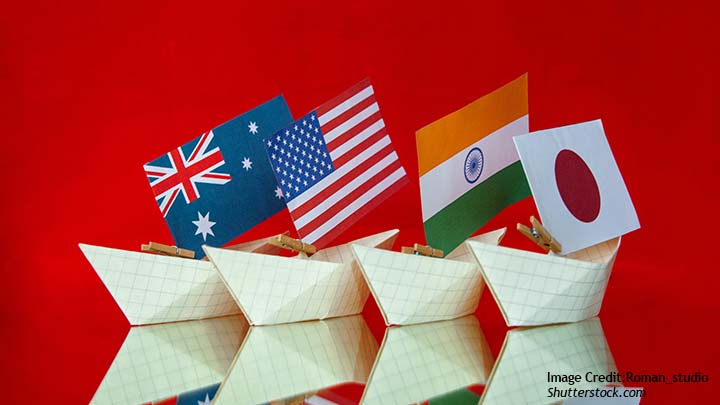How the Quad Can Become More Than an Anti-China Grouping

Jagannath Panda
Introduction:
On May 23, before the Quad leaders’ summit in Tokyo, the United States launched the Indo-Pacific Economic Framework (IPEF) with a diverse group of 12 countries initially — Australia, Brunei, India, Indonesia, Japan, the Republic of Korea, Malaysia, New Zealand, the Philippines, Singapore, Thailand and Vietnam. The US-led economic engagement is a salient attempt to allow countries to decouple from Chinese over-dependence in order to ultimately strengthen the existing free and open rules-based global order, which China has been targeting to upend, and re-establish US dominance. That the launch coincided with the Quad summit during President Joe Biden’s visit to Seoul and Tokyo signifies the essence of the Quad and its extension as a “plus” grouping.
You can read the full article on the website of The Indian Express.
Related Publications
-
Quad Plus EU: A Viable Option for the Times?
Today, the primary Indo-Pacific contest is not just about the China-US hegemony. It also involves a range of so-called “middle powers” – including Australia, France, Germany, India, Indonesia, Italy, Japan, […]
-
India from Japan’s Perspective: The Russia-India-China Trilateral
Undoubtedly, India is fully committed to the Indo-Pacific construct – that both former Japanese Prime Minister Shinzo Abe in 2007 and current Prime Minister Fumio Kishida in 2023 considered it […]
-
Kenya and the Indo-Pacific: The Rationale for an “Outlook” and Why Kenya (and East Africa) Matters
This issue brief argues that Kenya should carefully consider promulgating an Indo-Pacific outlook given the seismic shifts in global distributions of power and the resulting great power rivalry. The future […]
-
War in Ukraine: Between Solution Finding and Global Bloc Building
Executive Summary • The geopolitical landscape surrounding the war in Ukraine and the various proposed solutions to end the conflict are complex. • The war has impacted global power relationships […]
-
Engaging The Indo-Pacific: Some Pointers For Europe
The regional dynamics of the Indo-Pacific Region (IPR), especially maritime security-related, are distinctly different from other regions, especially Europe. There are existential sub-regional dynamics that vary across the IPR, which […]




